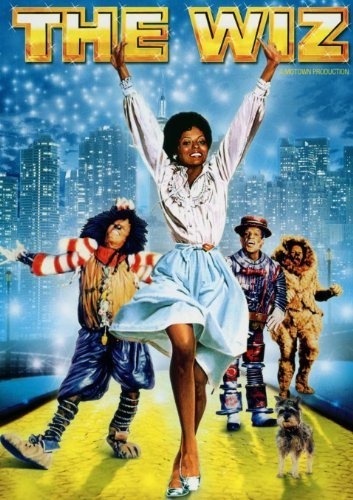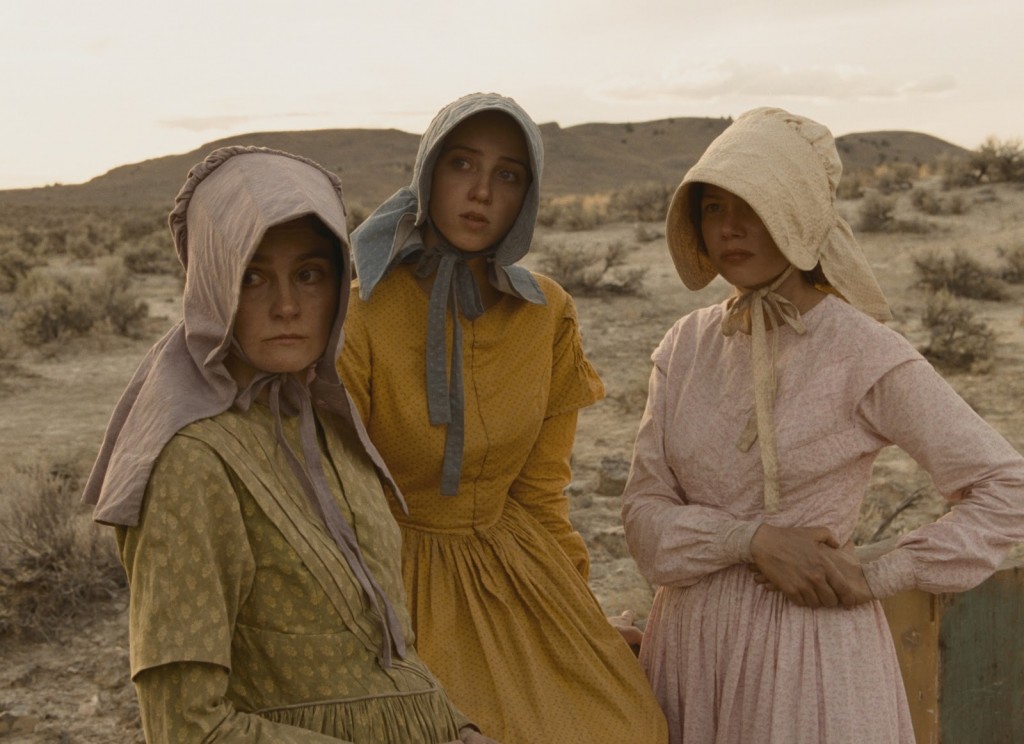 It’s a special sort of movie that asks audiences to tag along on an extended trek by foot, as this month’s “A Walk in the Woods” does. An adaptation of Bill Bryson’s eponymous memoir, it stars Robert Redford as travel writer Bill Bryson, hiking the Appalachian Trail while reconnecting with an old friend, Stephen Katz (Nick Nolte). But the walkabout film is actually a beloved genre – perhaps because there is nothing more Hollywood than a hero’s (or heroine’s!) journey. Consider these other walkabout features, many of which, interestingly, are also literary adaptations. I’m deliberately omitting the “Lord of the Rings” and “Harry Potter” films (they get enough air time!) but what else do you think deserves mention?
It’s a special sort of movie that asks audiences to tag along on an extended trek by foot, as this month’s “A Walk in the Woods” does. An adaptation of Bill Bryson’s eponymous memoir, it stars Robert Redford as travel writer Bill Bryson, hiking the Appalachian Trail while reconnecting with an old friend, Stephen Katz (Nick Nolte). But the walkabout film is actually a beloved genre – perhaps because there is nothing more Hollywood than a hero’s (or heroine’s!) journey. Consider these other walkabout features, many of which, interestingly, are also literary adaptations. I’m deliberately omitting the “Lord of the Rings” and “Harry Potter” films (they get enough air time!) but what else do you think deserves mention?
“The Wizard of Oz” (1939)
Sure, “The Wizard of Oz” is another film that gets plenty of air time. But when was the last time you actually watched this adaptation of L. Frank Baum’s children’s novel? Dorothy (the great Judy Garland) and her ragtag crew get an awfully good workout as they wander through the emerald and straw-hued labyrinth of her exceptionally vivid subconscious. They even manage to warble a few catchy tunes along the way. See also: “The Wiz” (1978). Disco cities, disco soundtrack, young MJ, and D. Ross as Dottie? Um, yes please.
“Stand by Me” (1986)
This adaptation of Stephen King’s coming-of-age novella about four boys’ pilgrimage to find a dead body doesn’t just include a physical walk. It also – successfully! – walks the fine line between sappy and sweet, despite the fact that director Rob Reiner has since produced some real tooth-decayers. Chalk that up to the skills of fledglings River Phoenix, Corey Feldman, Wil Wheaton, and (an unrecognizable) Jerry O’Connell, who collectively produced some of the best tween acting ever to grace the silver screen.
“Gerry” (2002)
When director Gus Van Sant (“Good Will Hunting,” “Milk”) gets obscure, he gets really obscure, and this is a good example. Casey Affleck and Matt Damon star as two guys who call each other “Gerry” and get lost on a desert trek. That’s basically the whole plot, and the scant dialogue is almost entirely improvised (which may be why it is both banal and unintelligible). This film is not for the faint of heart but, with Harris Savides’ expert cinematography and flashes of dark genius, it is no easier to dismiss than the love child of a 1960s Hungarian film director and Samuel Beckett. I kind of love it.
“Cold Mountain” (2003)
The late Anthony Minghella’s 2003 adaptation of Charles Frazier’s 1997 eponymous book captures the savaged terrain of post-Civil War America as few films have. Ostensibly a star-crossed love story about a Confederate Army deserter (Jude Law) making his way back to a preacher’s daughter (Nicole Kidman) stranded in North Carolina, it improves upon its source material with gorgeously unfussy direction that hearkens back to grander eras of film.
“Meek’s Cutoff” (2010)
All of director Kelly Reichardt’s works could qualify for this list – she seems to love tales about journeying through the American West – but this is the best of the lot. Michelle Williams, Shirley Henderson, and Paul Dano star as 1940s settlers traveling a covered wagon trail though they’re (mostly) on foot. A defiantly atypical Western, this asks hard, useful questions about truth, honor, and colonialism.
“The Way Back” (2010)
About a 1940 Polish solder’s walk to freedom with other Soviet prisoners, this stars Colin Farrell, Jim Sturgess, and Ed Harris in an old-fashioned epic of survival. Director Peter Weir (“The Year of Living Dangerously,” “Gallipoli”) is by now a pro with such material, and he captures the arduous road to human dignity with sweeping visuals and high stakes.
“Wild” (2014)
This adaptation of Cheryl Strayed’s memoir about hiking the Pacific Crest Trail may star Oscar winner Reese Witherspoon and be directed by Oscar-nominated Jean-Marc Vallée but it is admirably un-showy, especially visually. A gently feminist achievement, it is best to view it as a mother-daughter love story set against an untamed sky. As Witherspoon herself has joked, this may be the first film ever to star a woman who has no money, no man, no parents, no job, and no opportunities that still boasts a happy ending.
“Tracks” (2013)
Both narratively and aesthetically, director John Curran’s film about a woman (Mia Wasikowska) walking across 1,700 miles of west Australian desert with four camels and a dog does ample justice to Robyn Davidson’s eponymous 1980 memoir. For the millions who embrace this book as an unparalleled anthem of liberation, this is saying quite a lot. Some only may enjoy the stunning imagery or Wasikowska’s economic performance but “Tracks” also offers a rare and precious invitation: to consider what we really need.
This was originally published in Word and Film.
